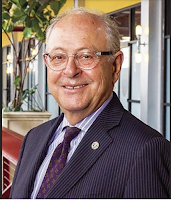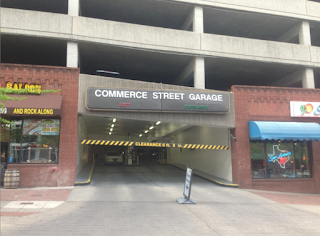Top Stories
Saturday, October 21, 2023
Friday, October 20, 2023
Unsolicited Advice to Members of the New Metro Council
Top Stories
The Increasingly Bizarre Political Campaign of Gabrielle Hanson
God's candidate for mayor? Critics say new Gabrielle Hanson video shows rise of Christian nationalism
Top Stories
Thursday, October 19, 2023
Williamson County Schools ranked 3rd best in the State.
by Rod Williams, Oct. 19, 2023- Niche is an organization that connects colleges and schools with students and families. As part of that process, they evaluate the quality of schools of every school district. The schools are ranked based on an analysis of key statistics and millions of reviews from students and parents using data from the U.S. Department of Education, according to Niche.
“Ranking factors include state test scores, college readiness, graduation rates, teacher quality, public school district ratings, and more,” Niche’s website states. “SAT/ACT scores have been removed from this year’s rankings to reflect a general de-emphasis on test scores in the college admissions process.”
In their recent ranking the best school district in Tennessee is Maryville, followed by Alcoa, followed by Williamson County at third place.
Wilson County School District scores 12th best schools, Rutheford County Schools are 13th best, and Sumner County is 17th best. Only school systems earning a letter grade of A or B are numerically ranked.
Among the large school systems, Knox County is 25th best school system in the State, and Hamilton County is 41st. Metro Nashville Public Schools is unranked and receives a letter grade of B- and Shelby County Schools receive a letter grade of C+.
Of Nashville Public Schools, the report says that according to state test scores, 12% of students are at least proficient in math and 19% in reading. By comparison, next door in Williamson County, 58% of students are at least proficient in math and 59% in reading.
For more information follow this link.
Top Stories
Wednesday, October 18, 2023
What Happened at Last Night's Council meeting. How members voted on Accepting a Grant to fund School Resource Officers
From The Pamphleteer, by Megan Podsiedlik, Oct. 18, 2023- Things weren’t as dramatic as expected at last night’s Metro Council—no verbal brawl over Wally Dietz’s reappointment or overwhelming public clash over SROs—but much was accomplished during the three-hour meeting. Along with the normal business on the agenda, a few of the new council members finally tested their wings and took to the mic.
APPOINTMENTS
- Metro Audit Committee: Burkley Allen, Courtney Johnston
- Planning and Zoning Committee Chair: Jennifer Gamble
- President Pro Tempore: Zulfat Suara
- Short Term Rental Appeals Board: Sean Parker, Mike Loyco, Nicole Williams
- Traffic and Parking Commission: Quin Evans Segall
- Finance Director: Kevin Crumbo
- Director of Law: Wallace Dietz
- Stormwater Management Commission: Trey Lewis
- Tourism and Convention Commission: Howard Kittell
- Work Release Commission: Shannon Musgrave, Jesus Gonzales
SRO FUNDS: ACCEPTED
At long last, the council passed a resolution to accept state funding to cover the cost of MNPS’ existing SROs — but not without a lengthy discussion.
Southeast Nashville council member Courtney Johnston stuck with her previous sentiment: “saying no to this does not get rid of the SROs. Saying yes to it does not add SROs.” She explained to the council that the decision was a fiscal one: “There are lots of things that I think are worth funding. This particular situation that we're looking at is nothing but a financial decision.”
Freshman council member Jeff Preptit had other ideas. “We should not be funneling our children through the prison industrial complex,” he stated.
Robert Nash, who represents District 27, addressed Preptit’s line of thinking: “This is not serving as some pipeline to the prison system. With all due respect, my golly. We are the 40th largest school system in the country. Last year, we made thirteen arrests…. And most of those were for the bomb threats that you've heard about lately, or somebody bringing a gun to school. It's not about somebody getting a little disorderly in the hallway.”
Tom Cash, for his part, expressed discomfort with the fact that the decision was kicked to the council instead of remaining within MNPS: “What to do about SROs and being able to shift money, however it's done, from SROs to other things is a policy decision and it needs to be made at the school board.”
Council member Brenda Gadd then approached the mic and revealed her dislike for the solution of SRO placement in schools before signaling that she would be voting in favor of the funding: “I'll be supporting today's resolution because of the way it's funded: accepting state dollars and not expanding– not making the policy decision to expand SROs.”
- Burkley Allen
- Quin Evans-Segall
- Jennifer Gamble
- Mike Cortese,
- Clay Capp,
- Tonya Hancock,
- Jennifer Webb,
- Jeff Eslick
- Erin Evans
- Russ Bradford
- Jordan Huffman
- Jacob Kupin
- Rollin Horton
- Sheri Weiner
- Thom Druffel
- Courtney Johnston
- Bob Nash
- David Benton
- Tasha Ellis
- John Rutherford
- Joy Styles
- Sandy Ewing
- Jason Spain
- Zulfat Suara
- Delishia Porterfield
- Olivia Hill
- Joy Smith Kimbrough
- Kyonzte Toombs
- Sean Parker
- Emily Benedict
- Deonte Harrell,
- Ginny Welsch
- Terry Vo
- Jeff Preptit
- Sandra Sepulveda
- Brandon Taylor
- Brenda Gadd
Top Stories
Franklin's MAGA mayoral candidate Gabrielle Hanson poses with self-proclaimed neo-Nazi in new post
By: Phil Williams, FRANKLIN, Tenn. (WTVF) Oct. 18, 2023— A photo posted Tuesday on the Telegram social media app shows controversial Franklin mayoral candidate Gabrielle Hanson posing with a self-proclaimed neo-Nazi for what appears to be a recorded conversation between the pair.
Hanson, who has refused to dissociate herself from the white supremacists who recently showed up at a candidates forum in support of her campaign, is shown sitting next to Sean Kauffmann, head of the Tennessee Active Club. (link)
Top Stories
Tuesday, October 17, 2023
What to do about the Hassle and Cost of Parking Downtown
My favorite place to park and where I can usually find parking is the downtown library garage. Back when First Tuesday met at the offices of Waller Law at 511 Union Street, which is across 5th Ave. from the Hermitage Hotel, I always parked at the library. It was about a two block walk to 511 Union but that was not too bad. If parking at the library, if you get your parking ticket stamped by the library, you get the first hour of parking free.
Now, when I go downtown, I sometimes walk. From my house a roundtrip walk to Lower Broad is 4.2 miles. I try to get exercise daily and walking, competing with gardening, is my main source of exercise. Usually, when I go downtown, I Uber. From my house Uber may cost between $9 to $24, depending on demand. That is not bad, especially if you are splitting the fee with someone else. I prefer it to the hassle of traffic and parking.
The current issue of The Scene has an article titled, One-Fifth of Downtown Nashville Is Devoted to Parking. Is That a Good Thing? It is well written and informative. The article does point out a logical function of pricing. Quoting someone from a group called The Parking Reform Network, the article points out that if parking is priced too low, more drivers are incentivized to stay in spots longer, reducing the availability of spots for drivers arriving downtown. Anyone who has studied economics or even thought about it much knows that is a function of prices. Higer prices reduce waste and proper pricing leads to greater efficiency and the market sets the optimal price.
The article's author, however, seems to think price gouging is going on downtown and seems to think parking rates should be regulated saying, "There are few if any examples of American city governments regulating rates in privately owned parking lots. Tennessee has state laws against price gouging, but they apply to a limited number of food, medical and emergency goods during “abnormal economic disruption” and certainly don’t include parking."
As pointed out in the article also, about ten years ago Nashville eliminated mandatory parking minimums based on a building’s square footage, occupancy, and use. If such was still in place, we would not have seen the growth downtown that we have witnessed. I was glad to see that parking minimums eliminated. Ever since about the late fifties, zoning in most cities, including Nashville, required minimum parking for commercial buildings. That resulted in the shaping of our cities where buildings are all separated from each other with a parking lot in front or office buildings in office parks surrounded by acreage of surface parking lots. Modern zoning also led to a shortage of affordable housing and urban sprawl, but that is a topic for another post.
So, what is to be done to make Nashville more accessible. First of all, don't do much. Let the market figure it out.
Secondly, don't stand in the way of innovation. Can you imagine what Nashville would be like without Uber? What would the need for parking be? Yet, Nashville tried its very best to stop ridesharing services when they first came to Nashville. You can read about it here, here, and here. One does not know what the next innovation will be before it is here, but government often thinks of its job as to protect people from innovations.
Thirdly, embrace smart parking and technology and privatization of on-street parking. Nashville has upgraded many of its parking meters so one can pay at a kiosk with a credit card but that is not really "smart meters." Privatization was proposed once before and went over like a lead balloon, but I think it is time to try it again. If there is too much opposition to privatizing the parking, then Metro should institute modern parking technology on its own if the debt service will support it. With smart technology, one can add money to the parking meter from your smart phone. This would be a good service. If you have ever had to leave an enjoyable meal early or rush a business meeting because your parking meter was going to expire, you can see how convenient this feature would be. Also, with smart parking technology, when searching for a parking space, smart parking can tell you where there is an available parking space. With smart parking technology, the price of parking can vary with demand. With variable parking rates, supply and demand works in real time. At times a parking space is more valuable than at other times; the price one pays to park should reflect this.
Fourth, make riding a bus more user friendly. I live on a street four houses off of 8th avenue. The bus runs up 8th ever 40 minutes. I have never ridden a bus in Nashville but thought I would try it. Unfortunately, the bus does not take credit cards and if paying by cash one must have the exact fare. I am pretty much cashless. I can go in almost any bar or coffee shop and tap my credit card and get a beverage. Riding a bus should be that easy.
Top Stories
TONIGHT AT METRO COUNCIL
Sandwiched between a laundry list of sewer legislation are a few key bills, resolutions, and appointments to watch.
First up are the appointments: Kevin Crumbo, Nashville’s numbers guy, is up for Director of Finance, and Wally Dietz is returning for the position of Director of Law. A few other temporary appointments will be sprinkled in between the elections of the President Pro Tempore, commission, and board appointments.
SRO FUNDING REVISITED
The resolution to cover the cost of existing MNPS SROs is back on the docket. Last meeting, a few hesitant council members deferred the legislation, even though accepting the state’s money would take the financial burden off Metro’s books.
“Saying no to this does not get rid of the SROs. Saying yes to it does not add SROs,” Councilmember Johnston had said while speaking out against deferment. The resolution is on the Public Health & Safety Committee’s agenda during their meeting this afternoon. The Q&A should shed more light on the legislation before it goes before the council this evening.
MNPD GETS A RAP ON THE KNUCKLES OVER LPRS
Ever since the end of the summer pilot program, the council has noticeably kept MNPD in limbo when it comes to making LPRs permanent in Nashville. While they’re waiting, three bill sponsors would like the police department to kindly pack it up: council members Emily Benedict, Ginny Welsch, and Delishia Porterfield have filed a bill requiring MNPD to take down all LPRs and signage used during the program. The bill will be introduced on first reading.
Top Stories
Monday, October 16, 2023
You Might be Right: What can we do about gun violence?
by Rod Williams, Oct. 16, 2023- This is the first episode of the You Might be Right podcast where co-hosts and former Tennessee Governors Phil Bredesen and Bill Haslam discuss important issues of the day. In this issue, they discuss the gun violence.
In the second half of the episode the governors are joined by David French, a political commentator, and author who regularly writes for The Dispatch, The Atlantic, and National Review. David French is a native middle Tennessean of humble origin who rose to prominence as a political commentator. I have seen him speak a couple times, once at First Tuesday and once at some other event. He is scholarly and thoughtful, yet very relatable. I respect his opinions and like him a lot.
French addresses the Second Amendment right to bare arms and recent supreme court rulings, the justification for an assault rifle, why the AR-15 is used for lawful purposes and is covered by the Second Amendment, and explains red flag laws and explains why, when properly written, they do not violate the constitution.
Follow this link to listen to the podcast. You can listen to the 44-minute podcast at X1.5 speed and not lose context. If you prefer to read the text of the podcast rather than listen, that is an option.
Top Stories
Trumpinista hypocrite Gabrielle Hanson could be Franklin's next Mayor
 |
| Mayor Ken Moore Antifa member? |
 |
| Gabrielle Hanson |
The worst, in my view, and the most recent issue regarding Gabrille Hanson is that she has failed to condemn a hate group called Tennessee Active Club. I am normally quite reticent to call a group a "hate group," because the term is often used to smear people who are culturally conservative. In the case of the Tennessee Active Club, the term "hate group" is justified. You can read about the Active Club network here. The group is openly white supremacist. Channel 4 News says the group is "a group of self-proclaimed neo-Nazis."
Top Stories
Sunday, October 15, 2023
Tennessee legislators to look into rejecting federal school funding in November
By Jon Styf | The Center Square, Oct 12, 2023 - With additional COVID-19 federal K-12 school funding winding down, Tennessee continues its look at what school funding would look like without federal dollars, which amounted to $10.4 billion coming to the state’s schools between 2019 and 2023.
Between Nov. 6-15, a new Federal Education Funding Working Group will look at what it would take for Tennessee to fund schools outside of federal requirements and federal funds.
That includes $5.8 billion in federal entitlement grants over that timeframe, along with $4.6 billion in one-time federal grants to Tennessee schools, according to a Tennessee Department of Education report filed at the request of Tennessee House Speaker Cameron Sexton.
“Any time the federal government sends money, there are always strings attached to those dollars, and there is always a possibility that it opens the state up to other regulations or restrictions,” Sexton said in a statement while announcing the new working group.
The state’s website has a tool to look at county-by-county spending across the state that shows $2.2 billion was spent on education in Shelby County, for instance, in the 2022-23 fiscal year.
Data from the U.S. Census Bureau and National Center for Education Statistics shows Tennessee currently funds its schools with $11,600 per student, ranking it ahead of just six other states and below the national average of $13.187 from the most recently available data from 2018-19.
A study from the Sycamore Institute showed that in 2019, before the COVID-19 increases in funding, $1.1 billion was sent to Tennessee schools with the state’s 142 school districts receiving between $314 and $2,500 per student in federal funds.
The bulk of those funds went to rural districts with more low-income and disabled students that were judged to have less local revenue capacity and lower English Language Arts test scores.
Districts received an average of $7.9 million in funding with Shelby County schools receiving $192.5 million on the high end and the single-school Richland City Special School District in Marion County receiving $311,000.
Top Stories














